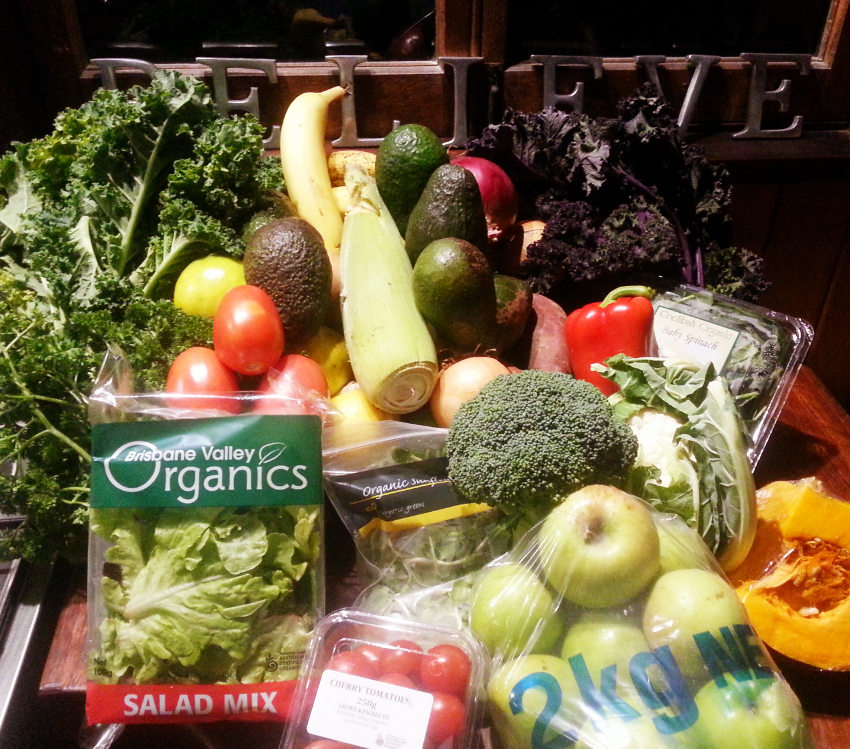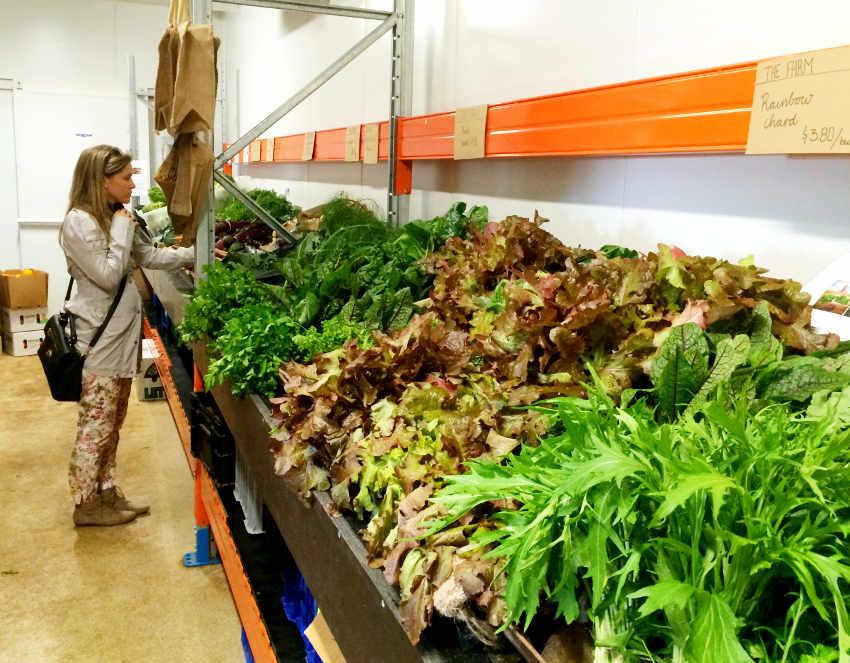
3 reasons to Eat Organic
Depending on which article, post, scientific study you read – generally speaking, the jury is still out on whether there are more nutrients in organic produce (fruit and vegetables) than conventional produce.
But I’m not here to talk about nutrient levels (this time), rather I’d like to bring your awareness to the positive impact eating organic can have on the well-being of you, your family and the environment. By avoiding harmful chemicals and letting your buying-power do the talking, we can collectively cause a shift.
“But it’s too expensive” you might be saying… Then I would say to you, compared to what? Sickness?
This may sound dramatic but the reality is no one has ever tested the combined effect that these chemicals have on the human body. The food we eat is just one area of exposure; there is also the water we drink, the air we breathe, the products we use on our bodies and in our homes and the off-gasing of furnishings and materials in our homes.
Now that you’re completely depressed, the good news is there are things you can do to minimise your risk, lighten the overall toxic load, protect your family and live well, without having to create an apocalyptic-style bunker.
Why do we choose to Eat Organic?
The main 3 reasons for us are;
Taste
You won’t believe it until you try farm fresh organic produce. It is so delicious! When we eat conventional produce, we can generally tell the difference as it’s just tasteless. Bare in mind we have bought organic from the supermarket and it too can be tasteless. This can be due to the time the produce has gone from the paddock to your plate. Which raises the next point about the impact of our modern day agricultural practices have on the freshness and quality of produce.
It’s no wonder people aren’t normally excited by a salad unless it’s covered in creamy dressing and bacon bits.
Health & Environmental Impact
Today, conventional fruit and vegetables are sprayed with chemicals, genetically modified, picked early, transported, stored, gased and irradiated all in the name of customer demand for a product that looks nice and is available all year round. It doesn’t take a scientist to see this process is going to have some implications to the quality of the produce compared to one that has been picked from your back garden. Although science does show this as well – we would highly recommend a book by top Environmental Toxicologist, Dr Peter Dingle called A supplement a day keeps the doctor away.
This book also discusses how our bodies are being bombarded by hundreds of thousands of chemicals from multiple sources, food being one of them. The combined effect of this toxic soup is having very detrimental affects on our health and the environment. We see every organic purchase as a vote for better health and policies. Have a read of this newspaper article about what happened to a family of five after two weeks of switching to eating organic!
Supporting Farmers leading the way
There is a growing movement of farmers who are inspired towards a healthier, more harmonious existence with our land, animals and communities which supports the environment and a healthier lifestyle. One which realises that it’s not sustainable to just keep taking from the land, spraying it with chemicals and not resting and replacing the nutrients in the soil.
Unfortunately the majority of our food supply is from over-commercialised farming sources that has been depleted of much of their nutritional value. Even the biblical Old Testament advocates the cycling and resting of farmland for one full year every seventh year to allow time for soil to be replenished. Keep an eye out for our future Dining Experience at The Farm Byron Bay. These guys have encapsulated this concept perfectly in so many ways, reminding us about the joy of being connected to the food we eat.
Where to shop?
Farmers Markets
We have found the best place to shop for produce is from an organic or chemical free farmers market. It’s the most affordable way to buy and eat organic and definitely gives you access to the freshest produce available, next to growing to your own. We hope to have our own beloved vege patch one day.
Our favourite market is Northey Street City Farm because everything there is organic so you don’t have to worry about deciphering what is what. Farmers markets are popping up all over the place now as they grow in popularity. Get to know the farmers at your local market, find out where your food comes from and how it is produced and you will realise a whole new appreciation for what you are nourishing yourself and your family with. Simply google ‘farmers market’ in your location to see what’s available in your area.
Home delivery
This can be a great alternative if you can’t always make it to the markets. There are many different suppliers out there now who home deliver farm fresh organic produce to your door. They also tend to carry many other products like organic meat, dairy and grocery items. A couple that we like are Home Fresh Organics or Your Organic Markets. Again, just google for one in your area. Who ever you decide to go with be sure to read their About Us section to understand where they source their produce and their philosophy behind their business.
Health Food Shop & Supermarkets
These are generally our last resort when it comes to organic produce, generally because you will pay a premium, and like we said earlier, in our experience the quality of organic fruit and vege at the supermarket can sometimes be questionable. We do however use these stores for other organic or natural grocery items. We will discuss further what items we buy where in future articles.
Budgetting?
To make shopping on a budget a little easier, the Environmental Working Group in the U.S has put together a shoppers guide detailing the Dirty Dozen and Clean Fifteen to help prioritise which fruits and vegetables to buy organic, ranging from the most pesticides to the least. Bare in mind this is based on U.S agricultural practices which can different slightly from Australia.
Wrapping up
Having said all of this, we have also learnt that even if you were to eat a perfectly balanced organic diet, it’s highly likely you are still not getting adequate nutrients to function optimally, due to many of the reasons we have outlined. Poor soil quality, eating out of season, early picking, transportation and storage of food.
Especially when considering our demands for energy at a cellular level to keep up with the hectic pace of life. It’s no wonder the world relies so much on coffee to function day to day.
This is also why it is it absolutely essential to include high-quality, combination supplements into your daily routine for life – or at least until you grow all your own food and live in the himalayas with clean air, pure water and no stress.
Quality supplementation acts like nutritional insurance for your body and really tilts the scales in your favour when it comes to preventing chronic illness. This is especially important if you travel regularly and it can really help you to keep on track with your wellbeing goals whilst you are away from home.
Read more about some of the powders and add-ins we use in our Breakfast Smoothies and at any time of the day to help boost energy and nourish our bodies.
Today, most, if not all illness can be traced back to nutritional deficiency. Keep an eye out for our blog article on Supplementation coming soon!
If you are completely new to organics, just start somewhere. You will be reducing some exposure to toxins, you will fall in love with the taste of your food and your body will thank you for it!


motoapk good
Im grateful for the article. Cool.